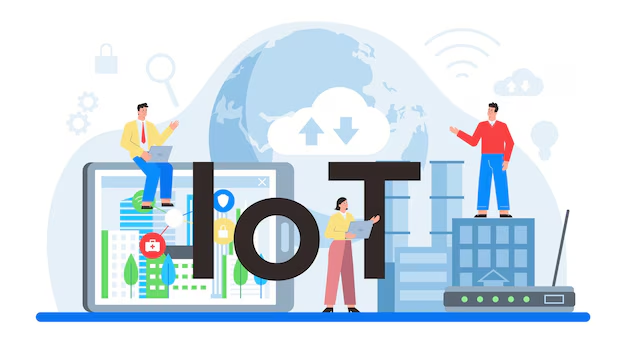
Do You Need to Tell the DVLA if You Change Your Number Plate?
If you change your number plate—whether you’re upgrading to a private registration or replacing a damaged one—it’s essential to understand your legal obligations. In the UK, number plates are directly linked to the official vehicle registration held by the Driver and Vehicle Licensing Agency (DVLA). As such, any changes to the plate, especially involving personalised or transferred registrations, must be reported correctly to avoid legal or administrative issues.
Assigning a Private Number Plate
When you purchase a private number plate, you don’t just receive a new set of characters—you’re altering your vehicle’s registered identity. Assigning that plate to your vehicle requires submitting an application to the DVLA, either online or by post. You’ll need the V750 certificate of entitlement (if it’s a newly purchased plate) or a V778 retention document (if you’re reassigning a previously owned registration).
Once approved, the DVLA updates the official vehicle record and issues a new V5C registration certificate with the updated number plate. At this point, you must physically update your number plates on the vehicle, inform your insurer, and make sure any other related services, like toll accounts or parking permits, reflect the new registration. Failure to inform the DVLA could leave your vehicle incorrectly registered, potentially causing problems with insurance or road use enforcement.
Removing or Retaining a Private Plate
If you’re selling your vehicle or simply want to remove your private registration while keeping it for future use, you also need to notify the DVLA. In this case, you apply to remove the plate, which places it “on retention.” Once approved, you’ll receive a V778 retention certificate confirming your right to use the plate again. Your vehicle will usually revert to its original registration, and the DVLA will issue a new V5C reflecting the change.
Skipping this step could mean losing the private registration altogether. The DVLA makes it clear that if a vehicle is scrapped or sold without properly removing the private plate, the entitlement to that plate is lost. For drivers who’ve invested in a meaningful or valuable private plate, this can be a costly oversight.
What About Replacing a Damaged Plate?
If you’re simply replacing a worn-out or damaged number plate with a new, identical one, you do not need to inform the DVLA, as long as the registration number remains the same. However, the replacement must still comply with current legal standards, including the correct font, spacing, material, and the BS AU 145e marking (for plates issued after September 2021). Using an unauthorised supplier or deviating from the official format could render the plate illegal, even if the registration itself hasn’t changed.
Reputable companies like Regplates provide road-legal replacements and personalised number plates that meet DVLA standards. They can also assist with the paperwork involved in transfers and retentions, ensuring that your changes are both stylish and fully compliant.
Staying on the Right Side of the Law
The DVLA’s registration system is there to ensure every vehicle on the road can be identified accurately and fairly. Whether you’re changing to a personalised plate, removing one, or simply replacing a damaged plate, it’s crucial that your vehicle’s records reflect the correct information.
Failing to notify the DVLA could result in fines, invalid insurance, or delays in future vehicle transactions. Fortunately, the process is straightforward and well-supported by services that help streamline plate changes and legal documentation.
In summary, if you’re changing the registration itself (by assigning or removing a private number plate), you must notify the DVLA. If you’re replacing a plate due to wear and tear, and the registration stays the same, no notification is needed—but the plate must still meet all legal standards. Either way, it’s always worth double-checking to stay compliant and protect your vehicle’s legal standing.
Also Read:
IIoT in Solar and Wind Energy: Optimizing Performance with Real-Time Analytics













Situs togel terpercaya : Tempat Slot Online Gacor dan Togel Terpercaya
Situs togel terpercaya : Tempat Slot Online Gacor dan Togel Terpercaya
Nikmati Permainan Slot Gacor di sigmaslot dengan RTP Tinggi dan Jackpot Menggoda
sigmaslot login : Login Mudah dan Cepat di Situs Slot Terpercaya
Temukan Link Sigmaslot Resmi untuk Daftar dan Main di link sigmaslot
Nikmati Permainan scatter hitam dengan RTP Tinggi dan Kemenangan Besar
Situs Togel Terpercaya dan Permainan Slot Gacor di situs sigmaslot
Situs Togel Terpercaya dan Permainan Slot Gacor di situs sigmaslot
Situs togel terpercaya : Tempat Slot Online Gacor dan Togel Terpercaya
Temukan Link Sigmaslot Resmi untuk Daftar dan Main di link sigmaslot
Nikmati Permainan Slot Gacor di sigmaslot dengan RTP Tinggi dan Jackpot Menggoda
Situs togel terpercaya : Tempat Slot Online Gacor dan Togel Terpercaya
sigmaslot login : Login Mudah dan Cepat di Situs Slot Terpercaya
Nikmati Permainan Slot Gacor di sigmaslot dengan RTP Tinggi dan Jackpot Menggoda
sigmaslot login : Login Mudah dan Cepat di Situs Slot Terpercaya
Situs Togel Terpercaya dan Permainan Slot Gacor di situs sigmaslot
sigmaslot login : Login Mudah dan Cepat di Situs Slot Terpercaya
sigmaslot login : Login Mudah dan Cepat di Situs Slot Terpercaya
Link gacor scatter hitam : Menang Besar dengan Slot Gacor dan Scatter Hitam
Situs sigmaslot : Platform Slot Online Terbaik dengan Kemenangan Menjanjikan
Nikmati Permainan scatter hitam dengan RTP Tinggi dan Kemenangan Besar
Situs Togel Terpercaya dan Permainan Slot Gacor di situs sigmaslot
Permainan scatter hitam mahjong yang Seru dan Menguntungkan, temukan di sini
sigmaslot login : Login Mudah dan Cepat di Situs Slot Terpercaya
Situs sigmaslot : Platform Slot Online Terbaik dengan Kemenangan Menjanjikan
Link gacor scatter hitam : Menang Besar dengan Slot Gacor dan Scatter Hitam
sigmaslot login : Login Mudah dan Cepat di Situs Slot Terpercaya
Permainan scatter hitam mahjong yang Seru dan Menguntungkan, temukan di sini
Permainan scatter hitam mahjong yang Seru dan Menguntungkan, temukan di sini
sigmaslot : Situs Slot Online Gacor dengan Peluang Menang Besar
Nikmati Permainan scatter hitam dengan RTP Tinggi dan Kemenangan Besar
Nikmati Permainan scatter hitam dengan RTP Tinggi dan Kemenangan Besar
Nikmati Permainan Slot Gacor di sigmaslot dengan RTP Tinggi dan Jackpot Menggoda
Situs Togel Terpercaya dan Permainan Slot Gacor di situs sigmaslot
sigmaslot : Situs Slot Online Gacor dengan Peluang Menang Besar
Nikmati Permainan scatter hitam dengan RTP Tinggi dan Kemenangan Besar
Temukan Link Sigmaslot Resmi untuk Daftar dan Main di link sigmaslot
Situs Togel Terpercaya dan Permainan Slot Gacor di situs sigmaslot
Nikmati Permainan Slot Gacor di sigmaslot dengan RTP Tinggi dan Jackpot Menggoda
Nikmati Permainan Slot Gacor di sigmaslot dengan RTP Tinggi dan Jackpot Menggoda
Link gacor scatter hitam : Menang Besar dengan Slot Gacor dan Scatter Hitam
Situs sigmaslot : Platform Slot Online Terbaik dengan Kemenangan Menjanjikan
Informasi akses situs Sigmaslot
Informasi akses situs Sigma slot
Informasi akses situs Sigmaslot
Informasi akses situs Sigmaslot
Informasi akses situs Sigma slot
Informasi akses situs Sigma slot
Informasi akses situs Sigmaslot
Informasi akses situs Sigma slot
Informasi akses situs Sigmaslot
Informasi akses situs Sigmaslot
Informasi akses situs Sigmaslot
Informasi akses situs Sigmaslot
Informasi akses situs Sigma slot
Informasi akses situs Sigmaslot
Informasi akses situs Sigma slot
Informasi akses situs Sigma slot
Informasi akses situs Sigmaslot
Informasi akses situs Sigma slot
Informasi akses situs Sigmaslot
Informasi akses situs Sigma slot
Informasi akses situs Sigma slot
Informasi akses situs Sigmaslot
Informasi akses situs Sigmaslot
Informasi akses situs Sigmaslot
Informasi akses situs Sigma slot
Informasi akses situs Sigma slot
Informasi akses situs Sigma slot
Nikmati Permainan Gates of Olympus Super Scatter dengan RTP Tinggi dan Jackpot Menggoda, hanya di Gates of Olympus Super Scatter
промокод продамус [url=https://prodams-promokod.ru/]промокод продамус[/url] .
kombi su kaçak tespiti Kartal su kaçağı tespiti: Kartal’daki tesisat sorunlarınız için deneyimli ekibimizle yanınızdayız. http://www.digitalskillscentre.com/blog/umraniye-petek-temizleme-fiyatlari/
Alemdağ su kaçak tespiti Sultangazi’deki evime hizmet veren ekip çok hızlıydı, su kaçağını hemen tespit ettiler. https://www.haberim.istanbul/firma-rehberi/uskudar-su-tesisatcisi-43
Riva su kaçak tespiti Hizmetlerinden çok memnun kaldım, herkese öneririm. https://www.toofoodies.com/?p=19636
Halkalı su kaçak tespiti Beylikdüzü’ndeki evimizdeki su kaçağını bulmaları çok zordu, ama çok başarılı oldular. https://social.worldcubers.com/read-blog/15466
Gültepe su kaçak tespiti Apartmanımızdaki su kaçağını bulmak için kullandıkları teknoloji çok gelişmişti. Hızlı ve etkili çözüm sundular. Mustafa U. https://relxnn.com/?p=39495
Kavaklı su kaçak tespiti Basınç testleri, su sistemlerindeki kaçakları güvenilir şekilde belirler. https://thebrooklynbazaar.com/author/kacak/
Taşoluk su kaçak tespiti Tuvaletteki gizli kaçağı kameralı sistemle buldular. Fayansları kırmadan tamir ettiler. Zerrin X. https://razonysalud.com/2012/10/18/uskudar-tesisatci-tikali-lavabo-acma/
Пошив штор на любой вкус, профессиональный пошив штор..
Пошив штор для вашего дома, с гарантией качества..
Индивидуальный пошив штор под любую комнату, по индивидуальному проекту..
Пошив штор по вашему дизайну, закажите онлайн..
Профессиональный пошив штор с монтажом, под ключ..
Лучшие ткани для пошива штор, по выгодным ценам..
Дизайнерские шторы на любой интерьер, Позвольте нам помочь..
Премиальный пошив штор, по вашему стилю..
Изысканный пошив штор, по вашим желанием..
Выберите качественный пошив штор, оформляйте заказ онлайн..
Мастера по пошиву штор, по лучшим ценам..
Разнообразие тканей и стилей, по индивидуальному дизайну..
Элегантные шторы на заказ, от профессионалов..
Создаем шторы по вашим мечтам, с индивидуальным подходом..
Пошив штор для любого помещения, по вашим размерам..
Высокое качество и стиль, от лучших мастеров..
Индивидуальные шторы на заказ, по оптимальной цене..
пошив штор пошив штор . “Ткацкий”
Thanks for your writing. I would also love to say that the health insurance brokerage service also works for the benefit of the particular coordinators of your group insurance coverage. The health agent is given an index of benefits desired by an individual or a group coordinator. Exactly what a broker does indeed is look for individuals as well as coordinators which will best go with those wants. Then he presents his referrals and if all parties agree, the actual broker formulates binding agreement between the 2 parties.